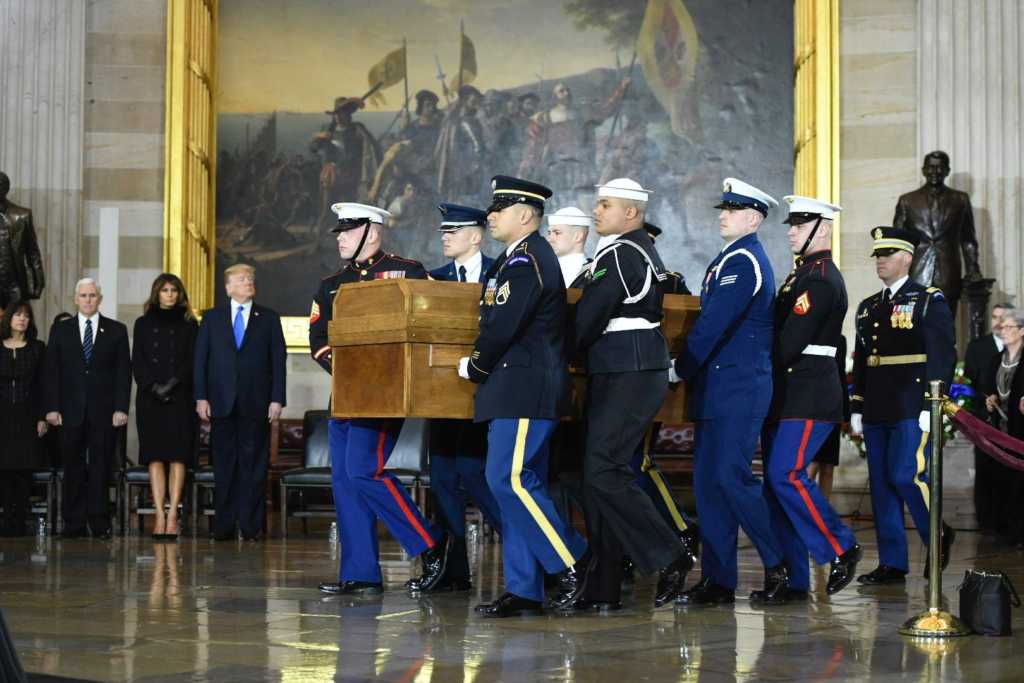There is no doubt that Rev. Billy Graham was one of the most famous clergymen in history. Having preached to over 200 million people and counseled several presidents, he was known as “America’s Pastor.” So why did this staggeringly influential preacher have his coffin made by prison inmates from Louisianna?
Well, it turns out that one of Graham’s foremost mission fields was the prison yard – he regularly preached the gospel to those behind bars. As Byron R. Johnson explained at The Gospel Coalition:
“The Graham family has been connected to the Louisiana State Penitentiary, a.k.a. Angola, a maximum-security prison once known as the bloodiest prison in America. Most of the prisoners at Angola are serving life sentences without the possibility of parole—meaning they will eventually die and be buried in the Angola prison cemetery.”
Graham personally visited the penitentiary:
“Franklin Graham preached at Angola, and George Beverly Shea sang there. In fact, Shea sang to more than 800 prisoners at Angola in 2009. He was there to perform and to give to the prison an organ he had received from the Billy Graham Evangelistic Association earlier that year for his 100th birthday. The Graham family would donate funds to help build a couple of chapels at Angola.”
The man who led the team of prisoners that was tasked with constructing the coffin for both Rev. Graham and his wife Ruth was a man named Richard Liggett – he was a convicted murderer. Almost 31 years into his sentence, Leggett passed away from cancer back in 2007. For such a man of fame and influence, his coffin is extraordinarily humble. Estimated at a cost of just $215, the plain wood coffins were made of plywood and lined with mattress pads made from Walmart comforter.
When former warden Burl Cain heard that many of the prison’s inmates were being buried in cardboard boxes, he knew something had to be done.
“Cain had the inmates construct plywood caskets for themselves and others who couldn’t afford one. In addition to making the caskets, the prisoners—many of them former hardened criminals who are now committed Christians—also pray over them,” the Billy Graham Evangelistic Association explained.
Billy’s son, Franklin, was taken aback by the site of prisoners devotedly constructing the intricate wooden structures.
“Franklin Graham was struck by the simple and natural beauty of these caskets and requested the prisoner’s design and build two of them for his parents. Billy and Ruth Grahams’ caskets were built by inmate Richard “Grasshopper” Liggett, with the help of others,” BGEA continued.
“I liked the simple coffin with a cross on top,” Franklin Graham said in 2006.
Centered on the top side of the casket, a symbol that was the center of Billy Graham’s 80-year ministry. “On top rests a simple wooden cross the prisoners nailed into place,” BGEA noted.
Billy Graham exemplified a preacher who cared for people of all backgrounds. He preached to presidents and prisoners, harboring the innate understanding that God loves each and every one of us, regardless of our worldly status.
“Graham’s Angola casket is a fitting reminder of the evangelist’s connection with some of America’s most forgotten people,” Johnson added.
Franklin re-visited Angola to take part in an opening ceremony for a new, privately funded chapel at the facility. As BGEA details, Prison chaplain Jim Rentz shared the following memory during the service:
“I want to tell you what Grasshopper said when he made Billy’s Graham’s casket. He said, ‘Billy Graham is a simple man who preached a simple message. He must be buried in a simple casket.’”



